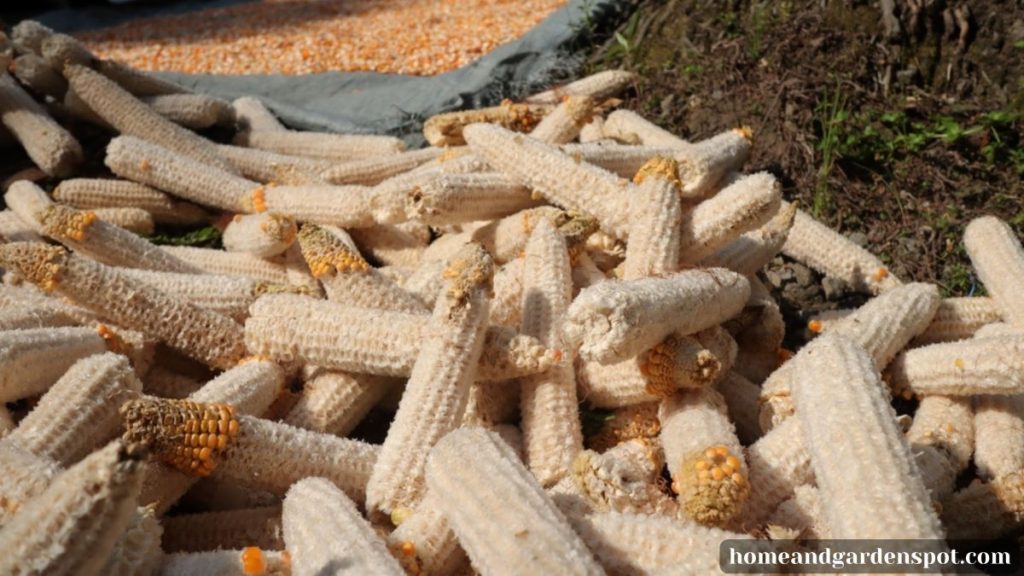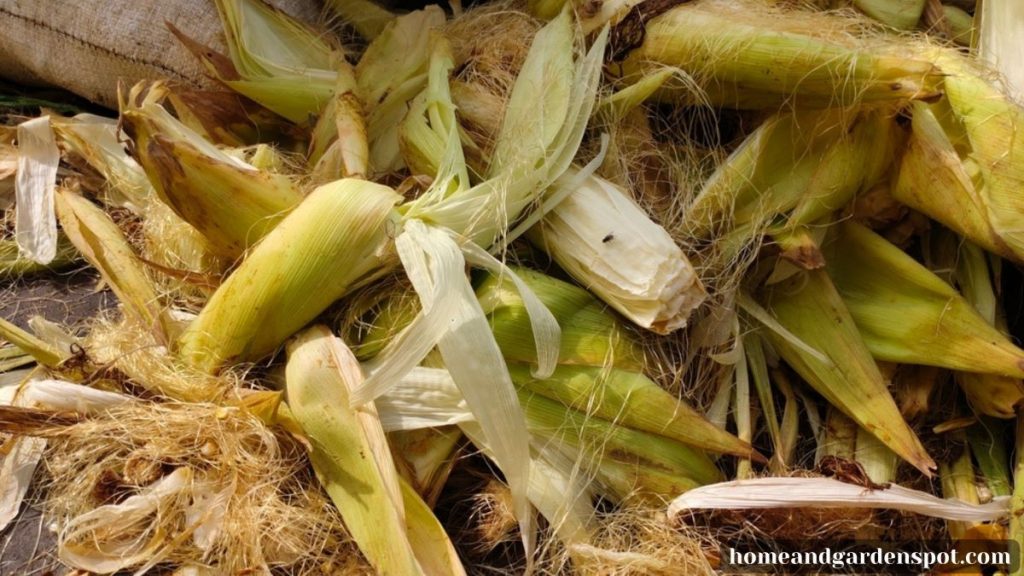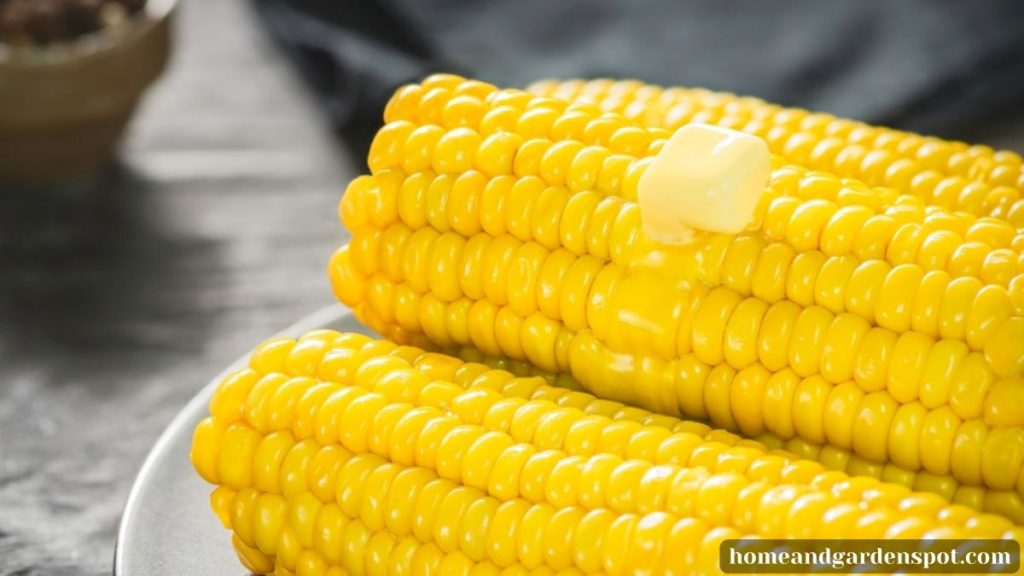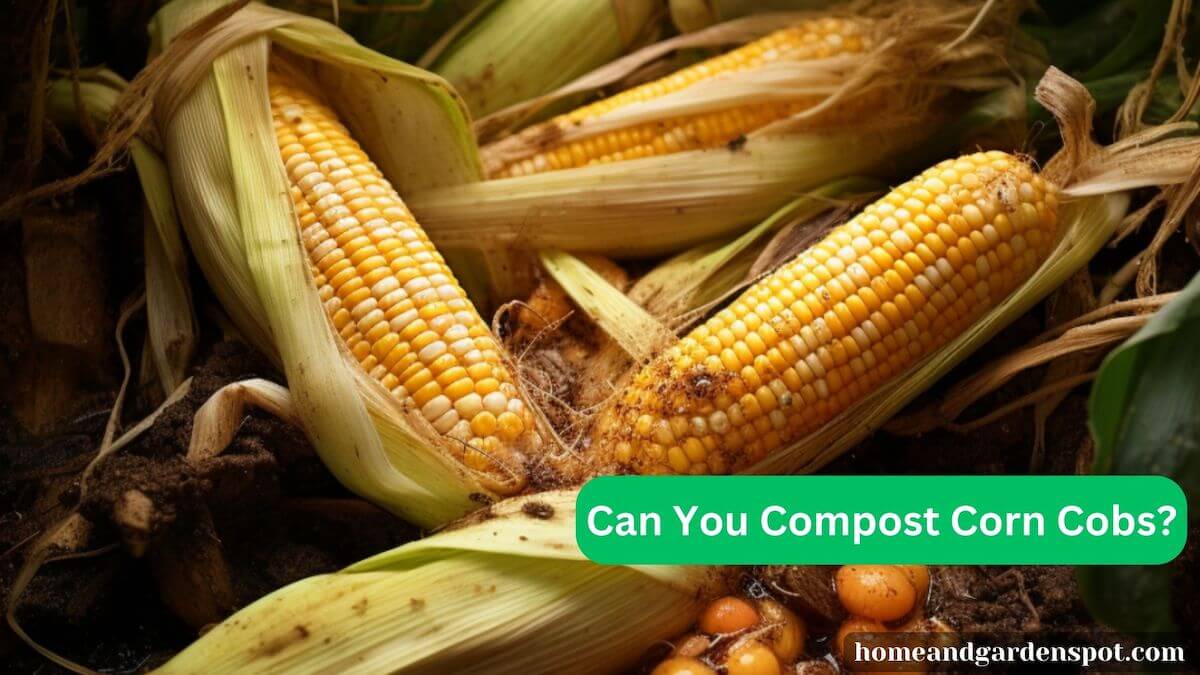I know you must be wondering what to do with all that corn cob. Should you just throw it away?
Trust me, you might want to think twice before throwing away. It holds more potential than meets the eye.
In this article, I’ll be answering the question “Can you compost corn cobs?” and telling you how you can go about composting. Let’s turn your corn cobs into black gold for your garden.
Can You Compost Corn Cobs?
Yes, you can compost corn cobs! Corn cobs are biodegradable, which means they can decay naturally.
Composting corn cobs is an eco-friendly practice that not only helps reduce landfill waste but also enriches your compost with essential nutrients.
When you add corn cobs to your compost, they gradually release valuable nutrients into the soil, promoting plant health.

How to Compost Corn Cobs
Here are 5 easy ways you can compost your corn cobs:
1. Cut the corn into small pieces to speed up decomposition and add moisture to your compost pile.
2. Mix the corn cob pieces with other vegetable waste such as corn husks or carrots.
3. Put the mix in a compost pile and add some topsoil with earthworms, grass clippings, and moisture.
4. Mix the cobs and food scraps into the soil with a shovel until they’re well buried.
5. Turn the pile every two weeks with a shovel and continue to mix new food waste.
Interested in improving your composting? Wondering if dryer lint can be composted or bones? Learn how to add unusual items to your compost for a greener garden.
How to Make Use of Compost Corn Cobs in Your Garden
Here’s how you can make use of compost corn cobs in your Garden:
1. Harvest the Compost with a shovel or spading fork from the bottom of your pile once it’s ready. The compost is ready for harvest when it develops a dark brown and crumbly look.
2. Choose a sunny spot in your garden and remove any weeds or debris from the area. Use a garden fork or tiller to loosen the soil to a depth of at least 6 inches.
3. Spread a 2-3 inch layer of compost over the soil surface. Use a rake or hoe to mix the compost into the top 6 inches of soil. Be sure to spread the compost over the entire garden bed.
4. After mixing in the compost, you can plant your crops as usual. Water them well and continue to water throughout the growing season.
5. As your plants grow, watch for pests and diseases. Add more compost layers during the season to maintain healthy, fertile soil.
Can You Compost Corn Husk?
Yes, you can compost corn husks with confidence! Corn husks are great for your compost. They break down fast and add nutrients.
They’re brown, helping balance the compost with greens. This supports microbes for good compost. Use corn husks to reduce waste and make a healthy garden.

Can You Compost Cooked Corn?
Certainly! You can compost cooked corn. You can compost cooked corn, but remember a few things.
Cooked corn, whether it’s on the cob or kernels, can be added to a compost pile as a source of nitrogen.
Composting breaks down organic matter into nutrient-rich compost for your garden. Avoid adding lots of cooked corn or any cooked food, as it can attract pests and slow decomposition.
Season corn moderately when cooking for a healthy compost. You can compost cooked corn. It’s better to use a little and skip additives for best results.

Conclusion
Corn cob can be composted and are a great addition to your compost pile.
Composting corn cobs has several benefits. First, it helps to reduce the amount of waste that ends up in landfills.
Also, it helps to improve soil health by adding organic matter and nutrients to the soil. It boosts soil quality, helping plants grow better and produce more.
Finally, Composting corn cobs makes cheap and easy fertilizer for your garden.

Leave a Reply